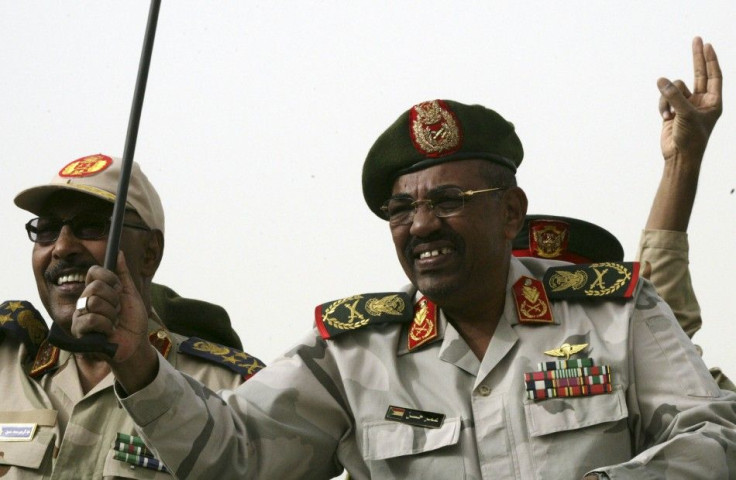Protests Rock Sudan As Bashir Slashes Fuel Subsidies In Accordance With IMF Recommendations

A little over two hours after fuel station employees in Sudan stepped outside to raise their advertised gas prices on Monday, hundreds of protesters hit the streets across the country to condemn the national government.
Sudanese President Omar al-Bashir announced the slashing of fuel subsidies in a televised speech Sunday evening. He said the program was costing US$1.7 billion dollars annually, and that the move was necessary to jump-start a faltering economy. The savings, he added, would be used to fund development initiatives and raise wages for public employees.
But the residents of several major cities -- including Khartoum, the capital -- who protested on Monday and Tuesday argued that the subsidy cuts would be too painful for average citizens.
"The government ... has no idea of what people are going through," one unemployed worker told Reuters. "I am ready to join any protest against the lifting." Security workers are out in force, and some of the demonstrations have been met with tear gas.
Sudan's economy has been especially shaky since the country formally separated from South Sudan in 2011, losing about three-fourths of the total territory's oil reserves. But, while South Sudan has most of the hydrocarbons, Sudan possesses the pipelines and facilities needed to get the crude to market.
The two countries' co-dependence has not eased lingering tensions. The main pipeline was shut down for 16 months beginning in early 2012, with both governments at odds over transport fees and ongoing border disputes. The shutoff debilitated both economies with inflation skyrocketing in Sudan and raising the costs of basic goods in a country where at least 45 percent live under the poverty line.
Oil has been flowing since April this year, but output is down to 200,000 barrels per day, or bpd, as opposed to the more than 350,000 bpd produced daily before the shutdown. The relationship between the two governments is still tense -- with each accusing the other of backing insurgents across borders -- but leaders of both countries promised earlier this month to keep the oil flowing.
The oil subsidy has helped some Sudanese weather a volatile currency. Its removal will nearly double the costs of petrol and cooking fuel. But outside analysts argue that the move is a smart one, since the subsidy has become highly expensive and unsustainable.
A report from the IMF last year asserted that "fuel subsidies are not only fiscally costly, but also inefficient and inequitable; their removal would deliver substantial gains to Sudan." It pointed out that the subsidies have diverted funds from more sustainable development projects, and that the policy has mostly helped wealthier citizens, with nearly half the subsidy benefits accruing to the richest 20 percent of households.
Bashir seized on those findings and has hewed closely to IMF recommendations, which included keeping the public informed on the benefits of subsidy-slashing. But this week's protests indicate that his public awareness efforts have not gone far enough.
Bashir, whose administration seeks to downplay the size of the protests, picked a good time to put the new policy into effect. News from East Africa has been dominated by Kenya since it suffered a terrorist attack at a mall in its capital city of Nairobi this weekend.
And, even Bashir is generating headlines of his own. He applied for a visa to visit the United States and attend the UN General Assembly this week, which has led to controversies regarding Bashir's indictment by the International Criminal Court, or ICC, for backing deadly violence against civilians in Darfur, and a warrant is out for his arrest.
Sudan's president has also faced internal criticism for corruption, suppression of dissent and fiscal mismanagement. Spending cuts last year spurred weeks of civilian protests, making the administration especially wary this time around.
If the subsidy cuts are to be a success, Bashir will have to prove that government savings are channeled into broad-based growth for a struggling populace.
© Copyright IBTimes 2024. All rights reserved.
Join the Discussion




















